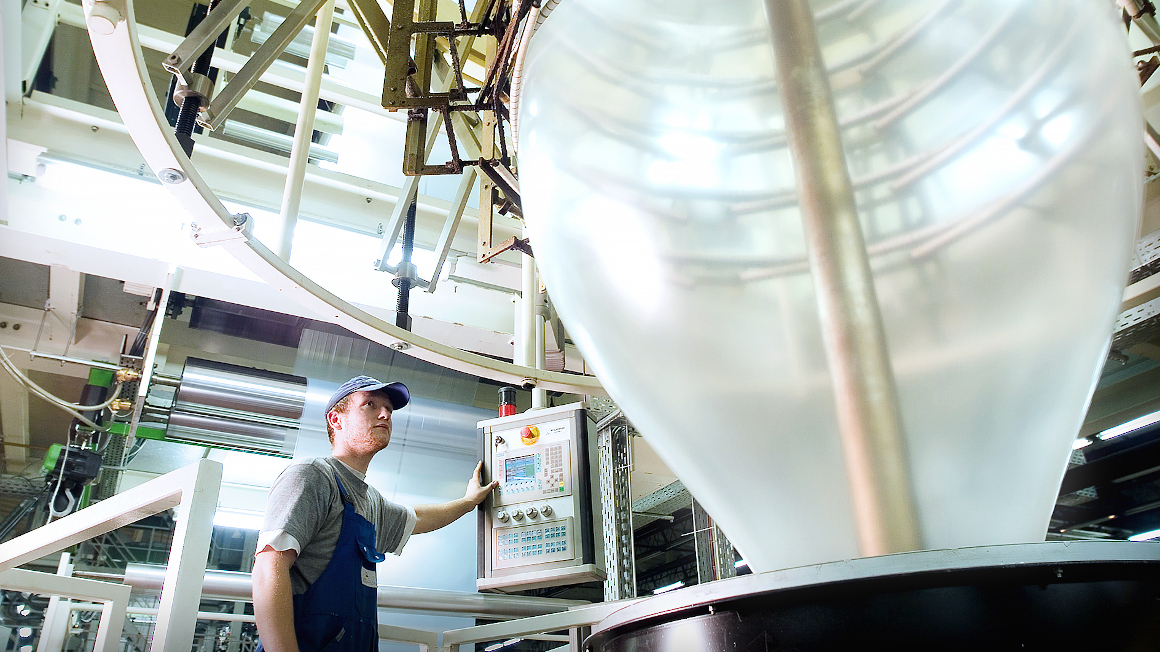Shipping bags made from new bioplastic
Fraunhofer researchers have expanded the range of sustainable bioplastics with a new type of polybutylene succinate (PBS) and produced a first product from it.

Bioplastics made from renewable raw materials and residues have the potential to replace petroleum-based plastics. Despite many advantages, however, there are still obstacles that prevent companies from manufacturing their products from bioplastics. These include higher production costs and an insufficient choice of bioplastic grades. 18 partners from research and industry want to change this in the joint project "Regional Entrepreneurial Alliance for the Development of Value Added Chains for Technical Bioplastics in Central Germany" (Regionales unternehmerisches Bündnis zum Aufbau von Wertschöpfungsketten für technische Biokunststoffe in Mitteldeutschland), or RUBIO for short.
The aim is to produce new types of sustainable plastics from regional plant waste that can be processed into products such as textiles, cladding parts or packaging, which are then recyclable as well as biodegradable. In this way, RUBIO aims to help shape structural change in the current lignite mining region in central Germany. The project has been running since 2021 and will be funded by the German Federal Ministry of Education and Research for three years.
Development of novel PBS plastics
Researchers from the Fraunhofer Institute for Applied Polymer Research (IAP) are now presenting their first successes. The team's task was to develop new grades of the bioplastic polybutylene succinate (PBS) that are not only biobased and biodegradable, but can also be processed using a wide range of methods. "So far, there are only three types of PBS on the market, and these are only suitable for a limited number of processing methods and applications," explains Thomas Büsse, who coordinates the joint project "Processing" at RUBIO and heads the Fraunhofer IAP's Processing Technology Center Biopolymers Schwarzheide (Brandenburg).
Foil made for shipping bags
Together with the project partner, POLIFILM EXTRUSION GmbH from Saxony-Anhalt, a company specializing in plastic films, the Fraunhofer researchers have developed a new PBS film that can be used for mailing bags. "This cooperation is an important step toward sustainability and allows us to offer products made from regional residual materials that are recyclable and biodegradable if lost in the environment. Another advantage is that they can be processed on common extrusion lines, so nothing stands in the way of the triumphal march of PBS materials," explains Tobias Otto, R&D project manager at POLIFILM EXTRUSION GmbH.
Targeting the use of regional raw and residual materials
As the collaboration continues, the two project partners plan to use regional residual materials to produce the novel bioplastic. "In principle, all materials containing cellulose or lignocellulose can be recycled. These include non-rotting fermentation residues from biogas plants, residues from agricultural operations that occur in a variety of forms, or even waste from paper production," explains Thomas Büsse. The use of regional raw materials and residues would shorten transport routes and thus reduce the prices for production, as well as making the products made from bioplastics even more sustainable.
bb


